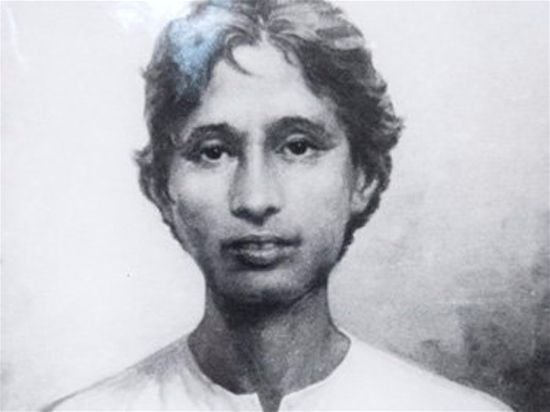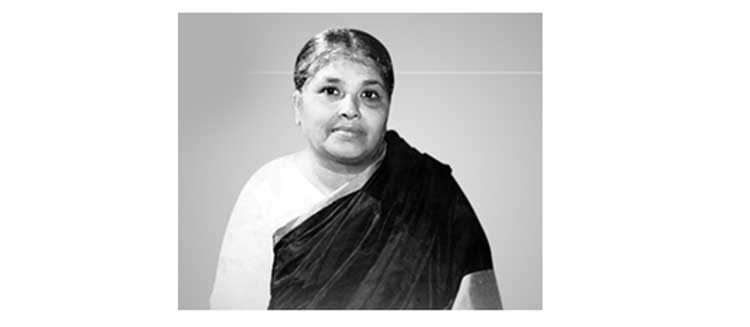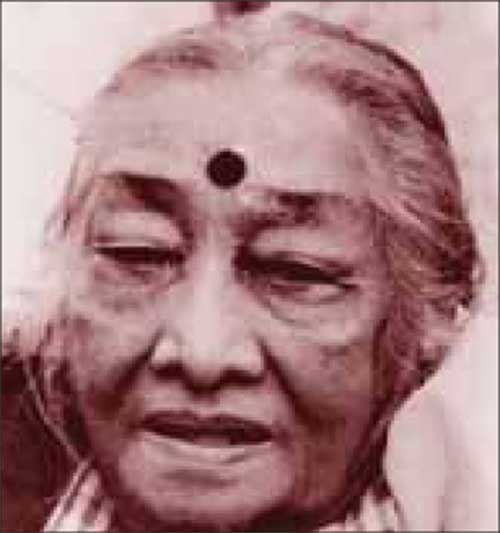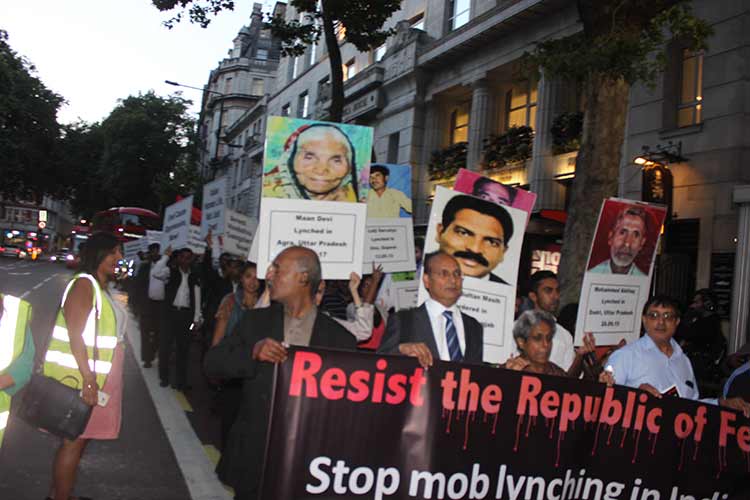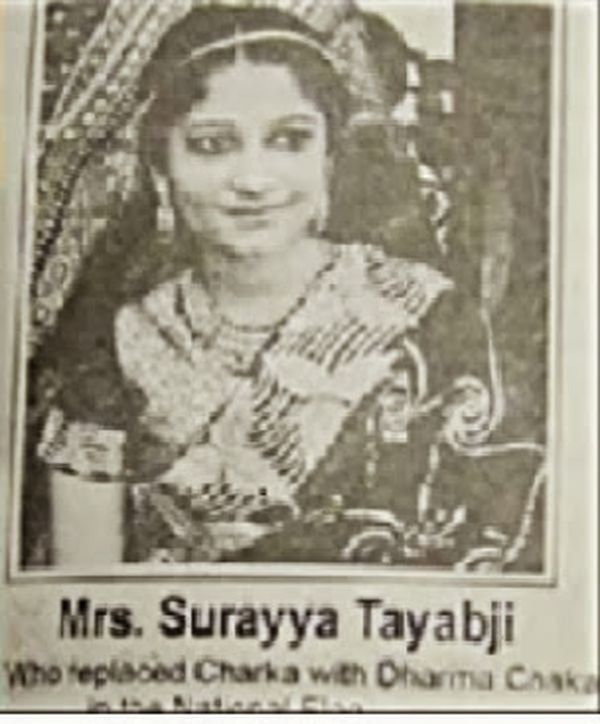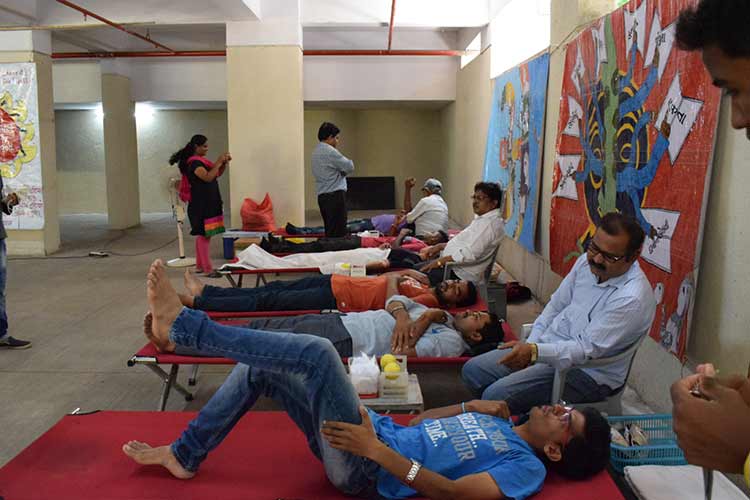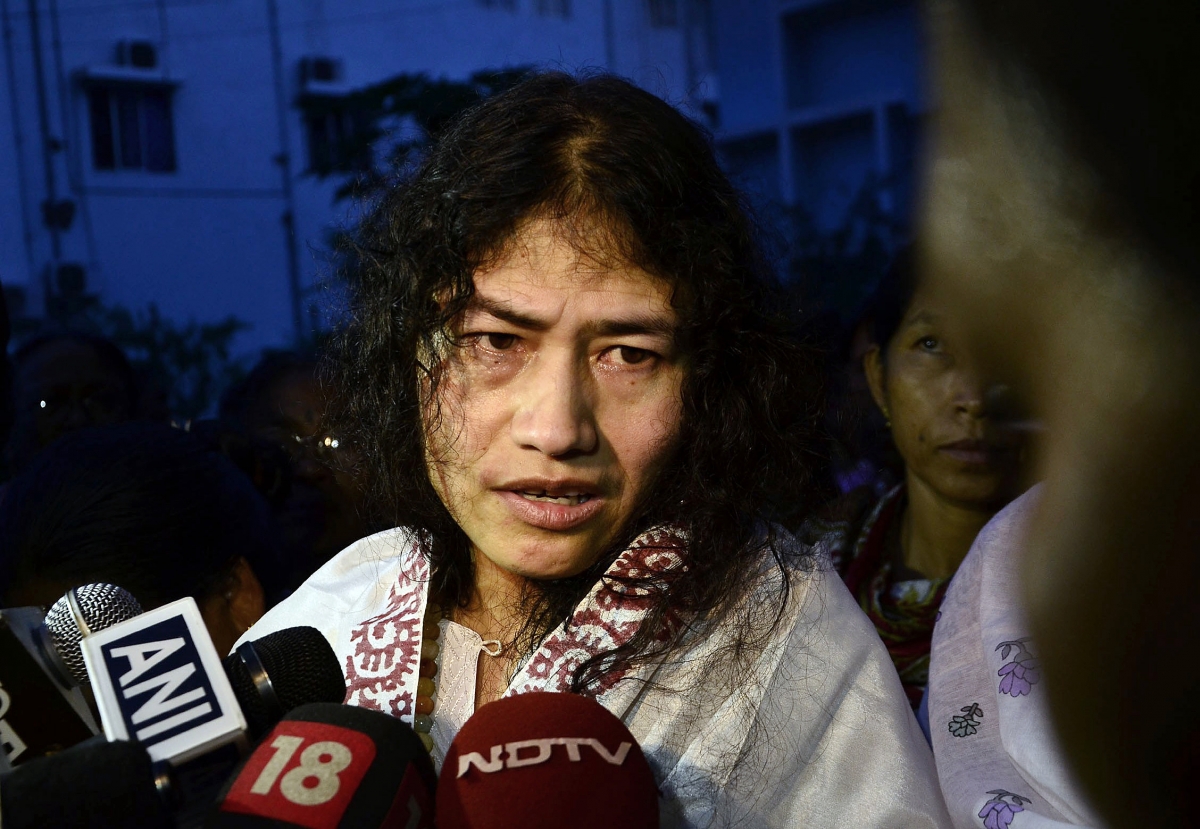
Irom Sharmila Chanu is not someone who is yet a part of only history books. She is very much a contemporary personality, living and breathing right now, as I am dedicating this piece to her. However, she is very much a super-shero of plural India. Her life story is also not hidden from anyone, so there is nothing new that I have to share about her. Having said that, I have my reasons of wanting to write and talk about her as a part of this series. That reason is to remind oneself and everyone around, of how demanding and at the same time how thankless we can be towards the very ordinary people who dare to step out of their comfort zones and do the extra-ordinary. The reason is also to remind oneself and everybody of the ever-widening gap between the mechanical functioning of the nation-state and the human values that are attached to each and every living being. The reason is also to again acknowledge the sheroic efforts made by the strong-willed lady in trying to talk humanity to those who operate mechanically, devoid of any emotions. The reason is also to thank her for all the efforts that she made solely out of a sense of solidarity with those that were and are suppressed and treated shabbily, not even being granted the basic human rights. The reason is to tell her and the world what an inspiration she has been for people like me and may be many others. The reason is to celebrate her and remember her with gratitude and undying fondness.
She had seen naked death, unbound and unfettered. She had seen human lives wasted, ending with a blink of an eye, terminated with a random gunshot, lying motionless in a pool of blood. She was awestruck, dumbfounded with the meaninglessness of it all. That was the moment it all began. That was the moment she realized that the privilege and comfort of ‘routineness’ would elude her forever. For she was unable to eat after that, not being able to pass that morsel of food down her throat. That was also the moment when the journey from ordinary to extra-ordinary would begin for her, a fast unto death for the repeal of the draconian AFSPA in Manipur. This was a journey that had never been a part of her plans, a journey in which many would join her, a journey that was now her life but that she would never be allowed to be in charge of. She would soon be placed on a pedestal she never intended to be on, she would be transformed from a living human being, with all her weaknesses, emotions, her frailties, into a goddess that was not allowed to possess in any of those. She had begun this journey in a child-like hope, a hope of a future for herself and her people that would not hold in its womb unspoken horrors of death and destruction, but the seeds of a life full of beaming promises and endless opportunities.
She had a hope that she and her people, who were as equal as anyone else, who had as much right to a normal and ordinary life as anyone else, would be allowed to do that, to live a life that was normal. She, who had not been able to eat at first, had thought that may be this was a sign, may be her giving up food would be it, the push that was needed, the nudge that would change her and her people’s future, for good. She had believed unflinchingly in Mahatma Gandhi, his non-violence, his numerous fasts that had changed lives and made histories. This was the child-like hope she harbored. Child-like, because she had been unaware of the world she was breathing in, she was unaware of what this innocent wish could lead to. She was unaware that she could be charged for trying to commit suicide, she was unaware that she could be force-fed like an animal, she was unaware that she could be confined to a life of isolation within the four walls of a solitary room, she was unaware that such unthinkable callousness, apathy and insensitivity was possible to be displayed by human beings. Yet she soldiered on, not letting that flicker of hope die within her, for sixteen long years she survived, stealing tiny little moments from life, when she felt love, joy, hope and promise, all the emotions that each and every ordinary human being was entitled to feel. But she had forgotten that she had been catapulted out of the ordinary, not because she wished to but because others thought it should be so. It had been decided that she was not allowed to feel, to live, to love, to laugh, to be an ordinary human being again. That she could only be a goddess now, devoid of all human emotions. That her life could no longer be governed by her wishes but by everybody else’s.
Then one fine day she decided. Decided that she wanted to live, to love, to laugh and to cry, to be human again. She wanted to marry and to have kids. She wanted to struggle but not how she had done for the past 16 years. She wanted to do it in a different way, in a way she thought would be more fruitful. She thought may be this was the way that could help her hopes be realized, her hopes for herself and her people. The goddess had decided to become a human again, and what a scandal that was. She was disowned and discarded, by those who proclaimed to love her, by those who hated her and buy those who were indifferent. She was left alone to make whatever she wanted of her life, it was inconsequential and useless for them now. She was also threatened that she would be robbed of this life if she dared to live it on her own terms.
However, she remained undeterred. She went ahead and declared that she would be participating in the very democracy that had chosen to ignore her for 16 long years. She declared that she would be fighting elections in Manipur, the state and the people she had fought for all these years. And she fought. And then she lost. And lost comprehensively, managing only 90 votes. Her reaction: ‘Thanks for 90 votes’. These are not just four simple words but hidden in this sentence is her complete personality and also the personality of the people she stood for.
I have nothing to say to her. Except a big Thank You. Thank you Irom Sharmila Chanu, for being what you are. Thank you for reminding me the meaning of life.
Nivedita Dwivedi has done MA in Elementary Education from Tata Institute of Social Sciences.

